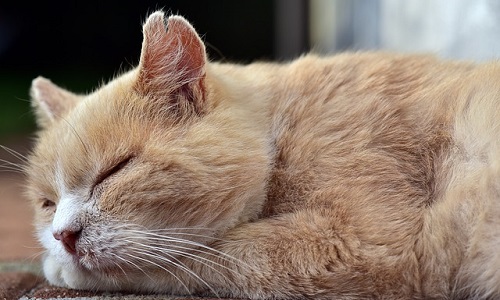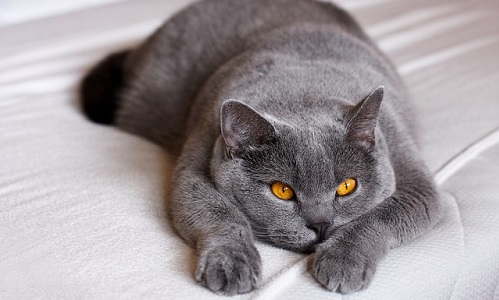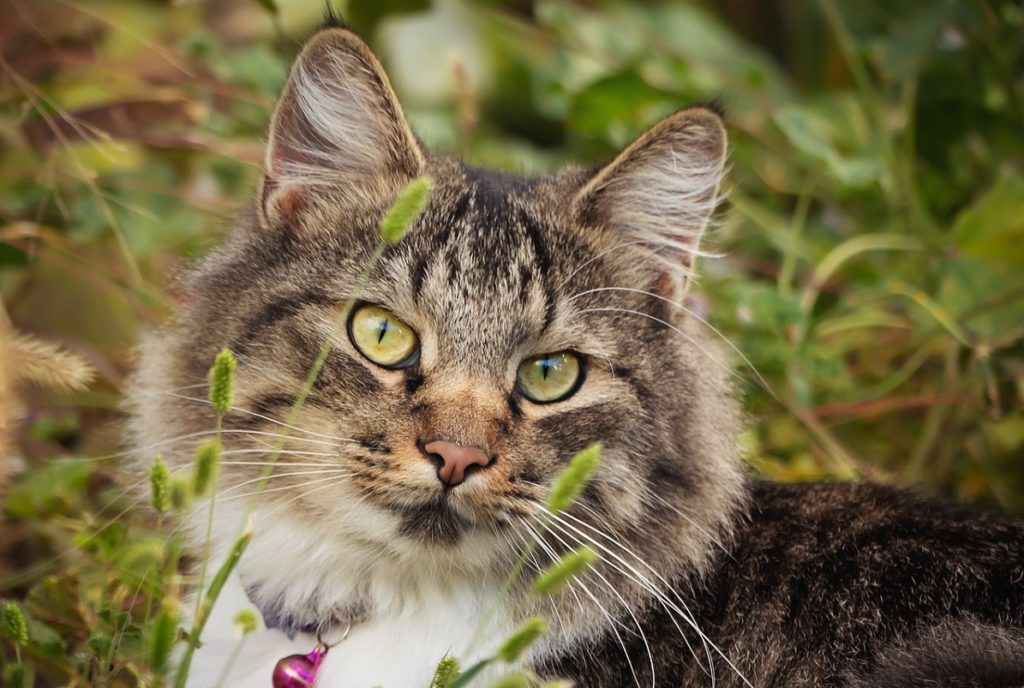If you’re worried that your cat may have had a miscarriage, please read on. Canna-pet has created this resource to walk through potential signs of a cat miscarrying and what to do if this occurs.
As always, after reviewing, we do advise consulting with your trusted veterinary professional. This is important because, as you’ll see in this blog, different steps are needed based on the root of why a cat has miscarried and their stage of pregnancy.
First, let’s address what symptoms of miscarriage to look out for.
Symptoms of a Cat Miscarriage
Most of the time, there will be telling signs. Perhaps you saw:
- Your cat appears to be uncomfortable or depressed
- A bloody discharge, especially if it contains pus1
- (See blood in other places, like blood in your cats poop?)
- The appearance of dehydration
- A feline fever
- Other unhealthy appearing symptoms, such as vomiting or experiencing discomfort
- Any fetuses that, no longer viable, passed through2
These do hint at miscarriage. If you see even one of these, it’s highly advised to seek medical attention for your beloved feline.
How Does a Cat Miscarriage Happen
 A miscarriage, no matter the root cause, is very upsetting. It is especially important that however difficult or traumatic the situation is, professionals figure out the underlying cause of why your cat experienced a miscarriage. We say this because, depending on the cause, there may be more issues at hand. It’s important to make sure it’s not something that would also harm the health of your cat in other ways.
A miscarriage, no matter the root cause, is very upsetting. It is especially important that however difficult or traumatic the situation is, professionals figure out the underlying cause of why your cat experienced a miscarriage. We say this because, depending on the cause, there may be more issues at hand. It’s important to make sure it’s not something that would also harm the health of your cat in other ways.
Often, cat miscarriage is related to hormonal issues3. Other reasons this could have happened to your sweet cat may include:
- Inbreeding
- Having a parasite, such as Neospora Caninum, which can enter a cat’s system if they’ve shared drink water with a dog who had the parasite4
- Cat being overly young
- An older cat
- (Here are other common health problems with senior cats.)
- Injury
- Infection
- Intensive stress
- Chemical exposure5
It may also be a condition or phenomenon that could affect their own, personal health, such as a chronic illness. If there is a more deeply rooted issue, that needs to be addressed in addition to taking care of your cat post-miscarriage.
What Will Happen at the Vet
It is important to seek veterinary assistance if your cat is experiencing the signs or symptoms above. The root cause or the miscarriage itself, especially if it’s further along, can stir up a variety of issues for your cat, including a hemorrhage or an infection.
We do not want to say this to scare you, but to ensure you seek help for your feline.
If fetuses were produced, it may feel really hard, but do bring them to the vet. By examining them, the vet can help establish what caused the miscarriage and do the best they can for your sweet cat.
At the vet, if you suspect a miscarriage, they typically will do a physical examination. This can also include:
- Blood tests
- An ultrasound6
If one or multiple fetuses are still within your cat but are no longer living, able-to-be-born creatures, they may need to remove them to make sure they save your cat from infection. Be ready to walk through the history of the pregnancy. Sharing the details will help the vet get the most comprehensive understanding of the situation and serve your feline best.
When Can a Miscarriage Occur?
 Cats are typically pregnant for about 60 days, which is about 2 or so months. Timing-wise, miscarriages can happen at different times throughout the pregnancy. If it appears your cat is straining or going through what may look like giving birth, but feels far too early, such as being just a few weeks, be on alert. When it is that early, it is probably not yet time to give a healthy birth and something is wrong. If this happens, do make sure to seek your veterinary professional as soon as possible7.
Cats are typically pregnant for about 60 days, which is about 2 or so months. Timing-wise, miscarriages can happen at different times throughout the pregnancy. If it appears your cat is straining or going through what may look like giving birth, but feels far too early, such as being just a few weeks, be on alert. When it is that early, it is probably not yet time to give a healthy birth and something is wrong. If this happens, do make sure to seek your veterinary professional as soon as possible7.
What To Do After
After there’s been a miscarriage, the process depends on what caused it.
- For an infection, the route is probably antibiotics.
- For any fetuses still within, they may need to be removed by the vet.
- A vet may recommend spaying to help promote your cat’s safety in the future.
As with humans after a serious and/or traumatic incident, whatever the route your vet recommends, it is ideal to allow your cat to rest and recuperate.
Do Cats Recover From Miscarriage?
With proper treatment, most cats do indeed recover. As you help your cat get past the experience and get back to a healthy state, it’s always a good idea to make sure they are eating as nutritious as they can.
To check nutrition and allow this to support the healing process, check out Cat Nutrition Checklist: What Every Pet Owner Should Know.
Sources:
McQuerrey, Lisa. “Symptoms of a Miscarriage in a Cat.” Cuteness.com, 9 Feb. 2017, Accessed 11 Oct. 2018. www.cuteness.com/article/symptoms-miscarriage-cat.
“Miscarriage in Cats.” PetMD, Accessed 11 Oct. 2018. www.petmd.com/cat/conditions/reproductive/c_ct_abortion_spontaneous_pregnancy_loss.
“Miscarriage in Cats Read More at: Https://Wagwalking.com/Cat/Condition/Miscarriage.” WagWalking.com, Accessed 11 Oct. 2018. www.wagwalking.com/cat/condition/miscarriage.




